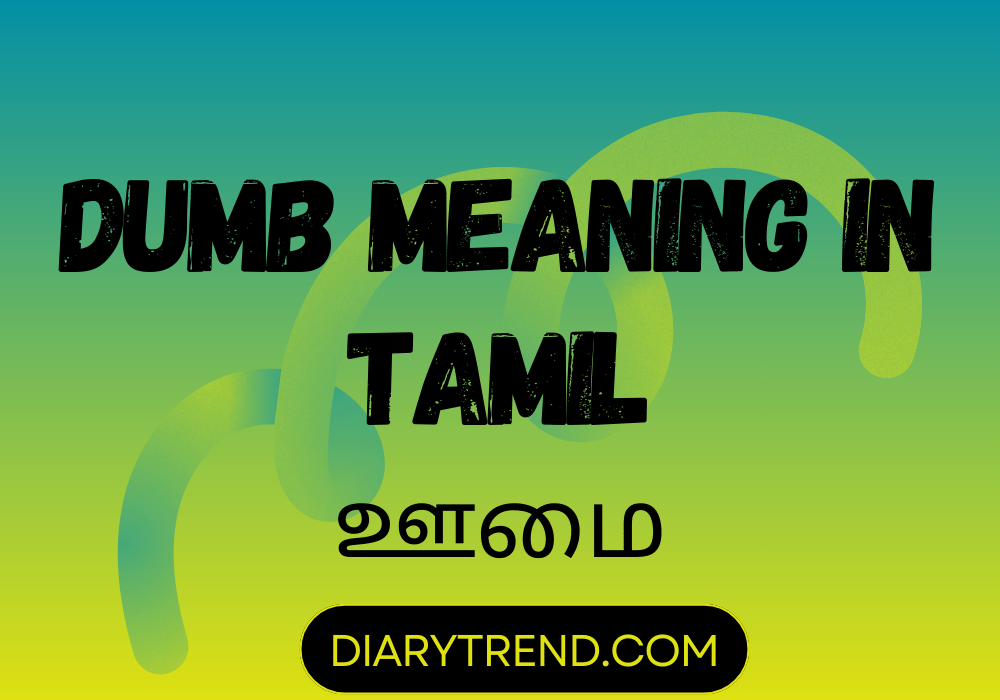In the rich tapestry of languages, words often carry more than just a literal meaning; they embody cultural context, emotions, and social nuances. This is particularly evident when translating terms like “dumb” from English to Tamil, a classical language with deep roots in South Indian culture. The translation not only encompasses the linguistic aspects but also reflects societal attitudes and sensitivities.
The Literal Translation: ஊமை (Oomai)
The word “dumb,” primarily understood in English as the inability to speak, is translated into Tamil as “ஊமை” (pronounced: Oomai). This term is used to describe someone who is mute, either due to congenital conditions or other factors. Historically, the word has been used clinically, without a derogatory connotation. However, in contemporary times, awareness around disabilities and the importance of respectful language has brought a more empathetic understanding of such terms.
The Figurative Translation: முட்டாள் (Muttal)
On the other hand, “dumb” in its colloquial usage, often implying a lack of intelligence or foolishness, translates to “முட்டாள்” (pronounced: Muttal) in Tamil. This term carries a distinctly pejorative connotation, akin to calling someone “foolish” or “stupid” in English. It’s a reflection of how language can be wielded to express disdain or mockery, and is often used in informal, sometimes offensive contexts.
Cultural and Social Considerations
In Tamil culture, as in many others, words that have potential negative connotations, especially regarding someone’s physical or mental abilities, are used cautiously. The evolving understanding of disability rights and the importance of respectful language has influenced how terms like “ஊமை” are perceived and used. Modern Tamil speakers are increasingly aware of the power of words and the importance of using language that does not demean or marginalize individuals with disabilities.
Conclusion
The translation of “dumb” into Tamil as either “ஊமை” (Oomai) or “முட்டாள்” (Muttal) provides a fascinating glimpse into the complexities of language and culture. It underscores the importance of context, respect, and empathy in communication. Languages are not just tools for expressing thoughts; they are mirrors reflecting societal attitudes and values. As our understanding of human dignity evolves, so too does the language we use, in Tamil and beyond.
